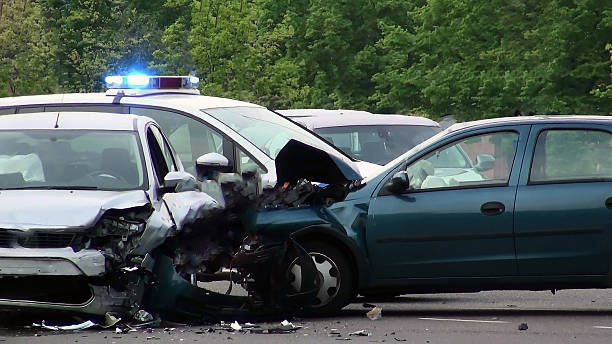

Sponsored Ads

Sponsored Ads

Driving Under the Influence (DUI) is a leading cause of road accidents globally. These accidents often lead to damages beyond physical injuries and can be categorized into economic and non-economic losses.
To recover economic and non-economic damages, the victim must prove the four elements of personal injury law.
Economic Losses
Economic losses in DUI accidents refer to measurable financial damages that the victim has to incur. They include:
Medical Expenses: Medical expenses involve the immediate costs the victim incurs in emergency care, such as surgeries and medication in the hospital. It includes long-term care costs such as physical therapy, rehabilitation, and other ongoing medical treatment. For chronic injuries that lead to disabilities, you must factor in future medical expenses.
Lost Wages: DUI accidents can also make the victim lose their wages when they’re unable to work during recovery. It can also include lost earning capacity in accidents where the victim cannot perform their previous job functions.
Out-of-Pocket Costs: There are other economic costs that DUI accident victims might have to incur out of their own pockets. It can include transportation to medical appointments, hiring caregivers or home care services, and any other indirect costs resulting from the accident.
Non-Economic Losses
Non-economic losses of DUI accidents are non-monetary damages that are subjective and reflect the impact of the accident on the life of the victim. These losses are hard to quantify and value in terms of money but are equally important and must be considered during compensation. They include:
Pain and Suffering: DUI accident injuries can subject the victim to pain and discomfort because of the sustained injuries.
Emotional Distress: In some cases, the suffering can involve enduring chronic pain, and this takes a toll on the victim’s emotions. Such victims are most likely to have psychological trauma, anxiety, depression, and post-traumatic stress disorder (PTSD). In some cases, the victim can fear driving or being driven, limiting their movement by road.
Loss of Enjoyment: Accidents that make the victim disfigured or disabled often lead to loss of life enjoyment. Such victims cannot participate in their hobbies, favorite activities, or life routines involving active movement, such as running, working out, and playing soccer. They have to adjust to a new type of life; this process can take time before they find joy in life again.
Loss of Consortium: Personal relationships with spouses, family, and friends can drastically change due to physical and emotional changes. Such physical changes can affect the self-esteem and daily functioning of the victim, leading to poor quality of life.
Legal Recourse and Compensation
DUI accident victims are entitled to compensation catering to economic and non-economic losses. The source of restitution can be the responsible party’s insurance, personal assets, or a court judgment on the matter.
Some cases involve punitive damages to deter future reckless behavior that will endanger the lives of other road users. The victim starts by filing a claim with the drunk driver’s liability insurance. Sometimes, the victim can rely on their Personal Injury Protection (PIP) insurance for immediate medical expenses and lost wages.
The victim can then work with a personal injury attorney to navigate the insurance claims and any lawsuits that might arise from the accident. The attorney will help build a strong case using evidence such as police reports, eyewitnesses, dashboard cameras, medical reports, and expert opinions.
Conclusion
DUI accidents can have both economic and non-economic impacts on the lives of the victims and the drunk driver. Holding the responsible party accountable not only provides financial relief to the victim but also serves as a critical deterrent to prevent future injuries caused by drunk driving.
Sponsored Ads

Sponsored Ads

